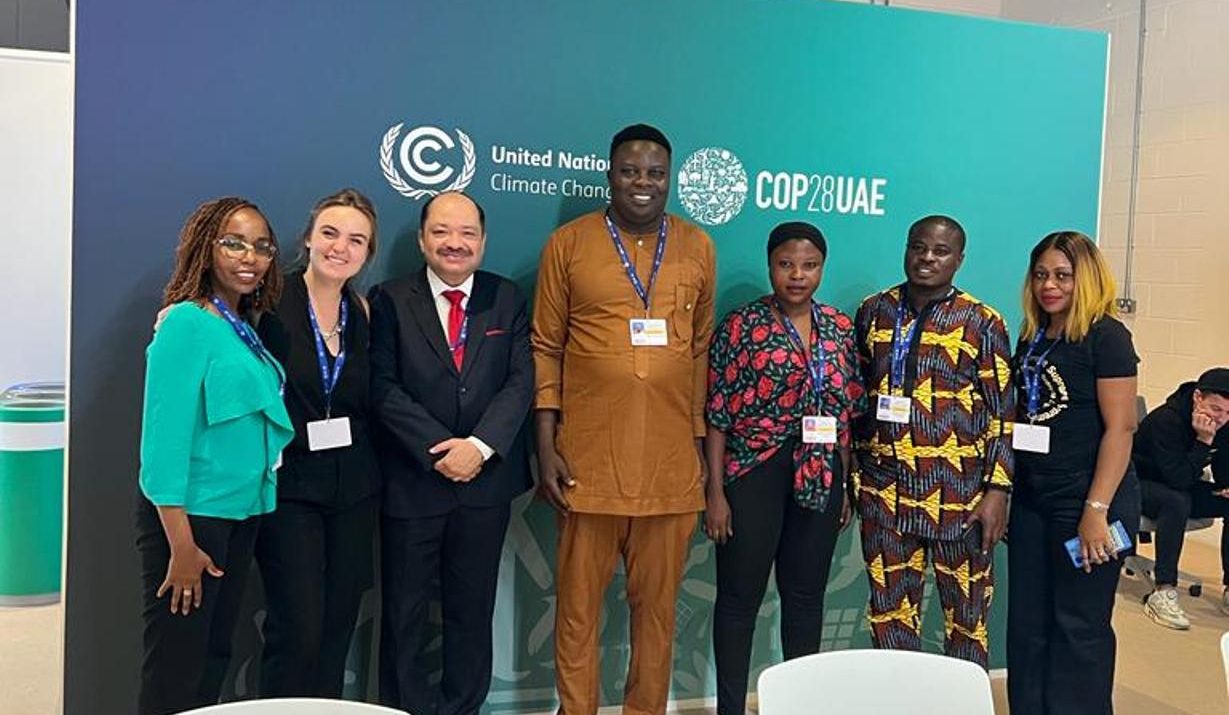Some Civil Society Organisation has said that clean energy transition parks will not only combat climate change but also strengthen community’ resilience to it.
The CSOs disclosed this at Knowledge in Knowledge out Bearers for local community Climate action at the Ecuador Pavilion during COP28 in Dubai
Prince Israel Orekha, the Executive Director of Connected Advocacy for Empowerment and Youth Development, representing the CSOs, said that engaging local talent in these initiatives would foster innovation and ownership for lasting impact.
He added that clean energy transition parks were crucial for local community’s sustainable future, adding that local involvement in these parks were key to addressing pressing environmental challenges.
The climate change advocate noted that the use of traditional energy sources poses great danger to the environment, leading to ecosystem disruption and biodiversity loss.
He said that traditional energy has great costs to health which were often overlooked.
He listed some of the health hazards as respiratory issues and long-term healthcare burdens.
“Pollution from traditional energy harms our environment and health.
“Over-reliance on non-renewable resources poses economic risks and environmental degradation,” Orekha said.
He said that Clean Energy Parks has the following benefits:
“Diversifying energy sources enhances energy security and reduces vulnerability to price fluctuations.
“Beyond economic gains, clean energy parks contribute to a cleaner, more attractive environment.
“Clean energy parks offer renewable alternatives, reducing our carbon footprint.
“Economic benefits include job creation and resilience against climate change impacts.”
Orekha said that there was the need for community engagement that would lead to a tradition from traditional energy sources to clean energy source.
He advised that such engagements should align with local needs.
He said that beyond job creation, clean energy engagement should enhance community knowledge about sustainable practices.
He explained that involving communities in clean energy decisions fosters responsibility and unity.
Orekha added that local job opportunities and skill development coukd result from the participation in the renewable energy sector.
The executive director warned that false solutions should be jettisoned because it could perpetuate environmental injustice, disproportionately affecting marginalized communities.
“Transparency in decision-making processes is essential to discerning genuine solutions from greenwashing.
“False solutions, like greenwashing, hinder genuine progress.
“Thorough research and community input are essential for sustainable solutions,” Orekha said.
He recommended that to advocate for policy changes that incentivize and prioritize sustainable practices at the local and national levels, the following should be done:
“Actively participate in community discussions on clean energy, ensuring diverse voices are heard.
“Lobby for inclusive policies that address both environmental and social aspects of clean energy transitions,” Orekha said.
He listed other means of advocacy to include the support for clean energy initiatives actively in ones’ community, adding that such advocacy should be sustained locally and nationwide.




2 Comments